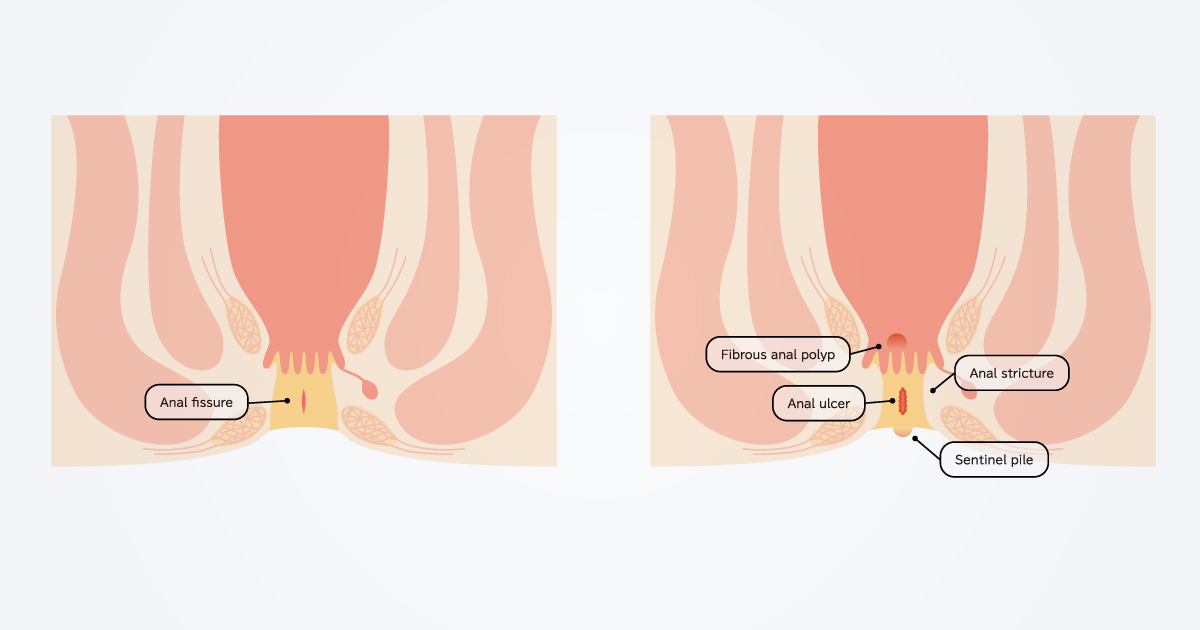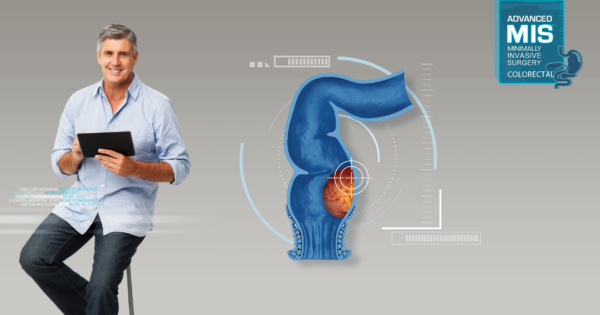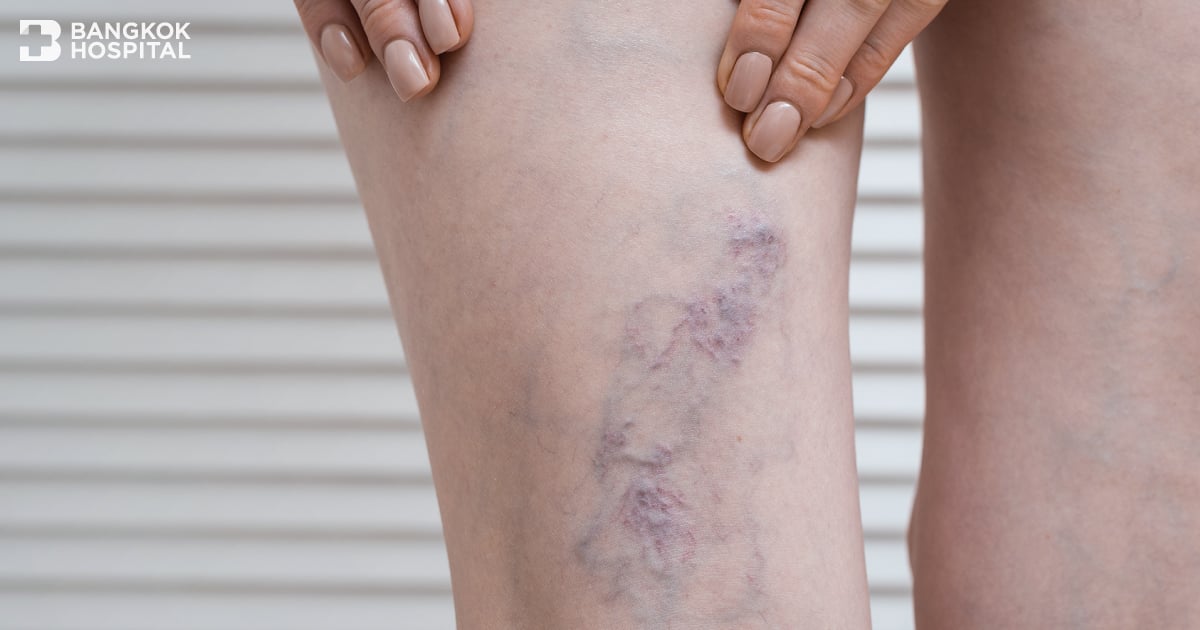Severe anal fissures can occur after passing large, hard stools, resulting in a tear. This can become chronic, becoming a deep fissure that reaches the internal anal sphincter muscle causing severe pain every bowel movement and affecting daily life. There are various treatments, with Botulinum Toxin injections being an effective, non-surgical option.
What is a severe anal fissure?
An anal fissure (Anal Fissure) is a condition where there is a tear at the margin of the anus, often due to passing hard or large stools . Patients typically present with the sensation of cutting pain in the backside during defecation, possibly with fresh red blood on the stool or toilet paper . Diagnosis is made through medical history and physical examination, discovering a tear at the margin of the anus
How many types of anal fissures are there?
There are 2 types of anal fissures, differentiated by the duration of the condition, namely
- Acute Anal Fissure (Acute Anal Fissure) The patient experiences symptoms from days to weeks, often healing with the use of laxatives to address constipation, fiber supplements to soften the stool, and pain relief medication for topical and oral administration
- Chronic Anal Fissure (Chronic Anal Fissure) Results from slow healing of the fissure becoming chronic with a spasm of the internal anal sphincter (Anal Sphincter Spasm) leading to less blood supply to the tissue at the midline (Midline) of the anus, preventing healing. Patients experience persistent pain, especially during bowel movements even if the stool is not hard, lasting more than 6 weeks. Doctors may find a deep fissure reaching the internal sphincter, with chronic edges like skin tags (Sentinel Pile) or inside the anus that looks like a hemorrhoid (Hypertrophic Anal Papilla) , usually treated with surgery.
How to treat chronic anal fissures?
The principle of treating chronic anal fissures focuses on relaxing the muscle. The most effective surgery is Lateral Internal Sphincterotomy (LIS) , which partially cuts the internal sphincter muscle to reduce tension in the anus, performed under general anesthesia (General Anesthesia) or spinal block (Spinal Block) . This surgery has a high healing rate of 80% – 90% but comes with significant risks, like infection at the surgical site

Botulinum Toxin Can it treat chronic anal fissures?
Botulinum Toxin Type A acts by inhibiting muscle contractions, indicated for conditions arising from muscle spasms in the body, well known for cosmetic injections into facial muscles. For injecting Botulinum Toxin Type A in patients with chronic anal fissures, current data is sufficient and is recommended by the American Society of Colon and Rectal Surgeons, stating it’s effective for treating chronic anal fissures
The efficacy of Botulinum Toxin in treating chronic anal fissures?
Injecting Botulinum Toxin Type A is another option for treating chronic anal fissures, suitable for patients starting treatment or those who wish to avoid the risks of surgery. The healing rate of the fissure is about 60% , administered under sedation along with a local anesthetic at the anus (Perianal Block) . This method reduces the risk of infection and bleeding from surgery, importantly, patients don’t need to stay in the hospital. However, the side effect is a temporary reduction in control strength of about 5% , which improves once the medication wears off after about 3 months
Benefits of injecting Botulinum Toxin for treating chronic anal fissures
- No surgical scars
- Reduced infection risk
- Reduced complications from surgery, such as post-operative bleeding
- No hospitalization needed
Doctors specializing in the injection of Botulinum Toxin for treating chronic anal fissures
Dr..Romyen Jitmungngan Colon and Rectal Surgery Specialist Bangkok Hospital
You can click here to make an appointment yourself
Hospitals ready to provide Botulinum Toxin injections for treating chronic anal fissures
Bangkok Hospital Surgery Center has specialized doctors and a professional team ready to take comprehensive care of patients with anal fissures, especially offering Botulinum Toxin injections for treating chronic anal fissures without surgery to help patients confidently return to their daily life
Ref.
DAVIDS, Jennifer S., et al. The American society of colon and rectal surgeons clinical practice guidelines for the management of anal fissures. Diseases of the Colon & Rectum, 2023, 66.2: 190-199.









